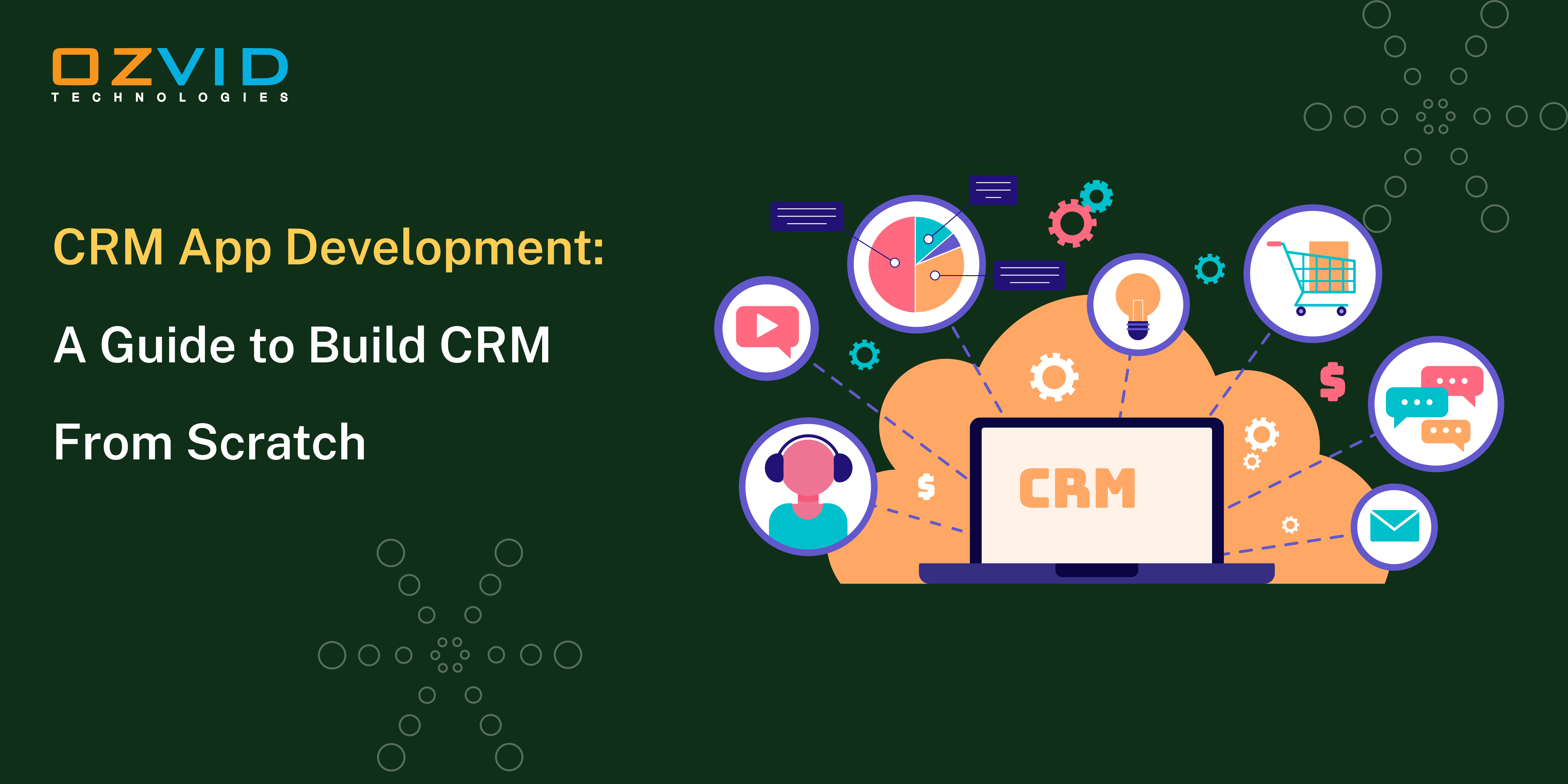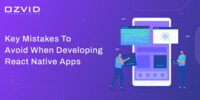- May 15, 2025
Share this post on:

Developing customer-centric experiences is what sets your business apart from your competitors. So, how can you make a shift that can help you truly create customer-centric experiences? Customer relationship management development offers an effective sales and marketing tool that helps you manage current and potential clients while streamlining workflow.
Customer relationship management software is all set to reach $98.8 billion in 2025. The market is expected to expand steadily and reach $145.61 billion by 2029, growing at a CAGR of 10.17%. Further, the CRM’s average spend per employee is estimated to reach $27.51 in 2025. We all ready are aware of the fact that no single solution fits every business requirement perfectly. So, be sure to get a customized solution that fulfills its purpose while purchasing CRM software.
Key Takeaways
- Custom CRM software aligns precisely with your business needs, offering greater flexibility, scalability, and long-term value.
- It supports efficient customer data management, robust security, and seamless integration with other systems.
- CRM systems enhance customer support, sales, marketing, and order fulfillment through centralized data and automation.
- Development costs vary from $10,000 to $500,000+, depending on features and complexity.
- A clear development process—starting with requirement gathering to QA—ensures optimal outcomes.
Top Reasons to Invest in Customer Relationship Management
Are you wondering how integrating CRM software helps you grow? What are the benefits of having custom CRM software for your business? Let us put some light into the details of customer relationship management software:
Customer Data Management:
Custom CRM software helps businesses manage their data in a way that fits their needs. They can choose what information to collect, how to organize it, and where to keep it. The software can also bring together data from many places, such as how customers use the company’s website. How do customers interact on social media? And many more. By gathering all this information, businesses can better understand what their customers like and how they behave. Also, looking at these details helps companies make smart choices to improve marketing, give better customer service, and grow their business.
Scalability and Adaptability:
When a business grows and changes, its CRM software needs to change too. Custom CRM software can grow with the business. It can manage more customer information, more users, and more complicated work. Custom CRM systems are flexible and can be changed to fit new needs. Unlike regular CRM software, which might have limits, custom software can be fixed and added to whenever needed. This helps the CRM stay up-to-date with how the business works, follow new rules, and use new technology.
Integrations:
Ready-made CRM software can easily connect with tools like social media analytics or email services. But sometimes, this software cannot connect well with special or unique systems.For example, if your company uses a custom online call system, it might be hard to connect it with a simple CRM program.
Robust Security:
Custom CRM development gives you a system with strong security that follows the latest safety rules. You can pick the security features that are important for your business and not pay for extra ones you don’t need. But with ready-made CRM software, you have to use the security settings chosen by the developers.
Cost-efficiency:
Ready-made CRM software comes with subscription plans that include certain features. This works well and is affordable for businesses in the short term. But as your business grows, you will need more features, which will cost more money. Sometimes, ready-made software can’t give you the features you need at all.
So, if you want your business to grow and change, it is better to have a custom CRM system made just for you. Also, you can earn money from your custom CRM by using the Software-as-a-Service (SaaS) model.
Types of Customer Relationship Management Systems
Before finding out how custom relationship management services can help your organization grow and improve the performance of your departments. Let’s take a look at the types of customer relationship management systems:
Operational CRM Systems: This type of CRM is about making sales automatic, handling customer connections better, and improving how sales, marketing, and customer retention work. It can include features like managing potential customers, managing contacts, tracking the sales process, and a help desk. Famous examples of operational CRM systems are HubSpot, Salesforce, and Creatio.
Analytical CRM Systems: This type of CRM software gathers a large amount of information from many sources. It uses this information to create reports, insights, and useful data. It shows data in real-time and helps you plan your activities. A few examples of Analytical CRM systems involve Zendesk, Salesforce Einstein, and Zoho Analytics.
Collaborative CRM Systems: Collaborative CRM Systems help people work better together by sharing information clearly. It usually has features like live chats, shared boards, and group discussions. Examples of Microsoft Dynamics 365, SAP Customer 360, and Pipeliner CRM.
CRM Systems Use Cases
CRM solutions help businesses with various tasks. In this section, we will discuss the use cases of these systems:
Customer Support: Your managers will do their work faster when all customer questions and requests are kept together in one place. This makes it easier to solve problems quickly. A CRM system saves all the customer’s information and past talks in one profile. This helps managers know everything about a customer’s history. Without a CRM, messages and emails are spread out in different places, which can cause mistakes and take a lot of time to find important details.
Sales: For sales managers, a CRM system helps them gather and save customer information, make the sales process easier, and create special offers that fit what customers want. The main features of a sales-focused CRM system are managing customer accounts, planning sales activities, checking sales data and reports, and automatically handling new sales leads.
Marketing: A Customer Relationship Management (CRM) system helps your marketing team work closely with your sales managers. They can plan campaigns, schedule marketing events, and set targets more easily. A marketing CRM also helps to look at customer details and understand how the business is performing.
Order Fulfillment: CRM systems often have order tracking features that let users see the status of orders right away. Salespeople and customer service staff can give customers correct updates about their order progress when the order will arrive, and if there are any delays or problems.
CRM Self-Services Portals: CRMs can help reduce the work for customer service by giving customers ways to help themselves. Features like a customer portal and document management let customers find information on their own. You can also add knowledge bases and FAQs to the CRM portal,so customers can solve problems by themselves.This makes customer service work easier and faster.
Custom CRM Development Process
Let us move forward in the blog, and learn the working process of the custom CRM development process:
Know Business Requirements: Before starting any development process, understand your business needs. Set your goals and ensure that your goals are clear, measurable, and achievable.
Identify Key Stakeholders:
It is important for business success to identify the key stakeholders within the business. Key stakeholders can be representatives from different departments including sales, marketing, and customer services. Each stakeholder offers insights to the table. So, it is beneficial to involve them at an early stage.
Conduct Market Research:
CRMs can make customer service easier by letting customers help themselves. Features like a customer portal and document storage let customers find what they need. You can also add FAQs and information pages to the portal, so customers can fix problems on their own. This lowers the amount of work for customer service.
Choosing the Right IT Provider:
Choose your partner carefully by looking at reviews on sites like Clutch.co and making sure the IT company has experience with CRM projects. A good IT company can help you plan, give advice, and suggest useful features. Picking a CRM company that knows your business will help you avoid many problems when building mobile and web apps.
Prioritizing CRM App Features:
Too many features or very hard features can cost a lot and take a long time to make. So, it’s better to choose only the features you need. Ready-made solutions have a problem — you pay for many features but use only a few. With a custom-made solution, you can find out what your organization needs and make only those features.
Designing and Planning:
Too many features or features that are too complex can be expensive and take a long time to develop. So, it’s best to focus only on the features you truly need.
As mentioned earlier, ready-made solutions have a big downside – you pay for a lot of features, but you only use a small number of them.With a custom solution, you can research what your company needs and build just those specific features.
QA and Testing:
During development, the QA team works with others to create a test plan.This plan explains what to test, how to test, and what is needed for the system to pass. Following the plan, the team tests the system carefully to find and fix any problems. They check if the system works well, if all parts work together if it is fast, and if users like it.
CRM App Development Cost
The cost to develop a custom CRM app varies widely depending on features, complexity, and the development team. Here is a summary of typical price ranges and factors influencing cost:
- Basic CRM systems with essential features like contact management and task tracking usually cost between $10,000 and $50,000 and take 2–4 months to develop.
- Mid-level CRMs with custom workflows, integrations, and reporting often range from$50,000 to $150,000, with development times of 4–6 months.
- Advanced or enterprise-level CRMs that include automation, advanced security, and full integrations can cost $150,000 to $500,000 or more, requiring 6–12 months or longer to build
Conclusion:
When you create custom CRM software, it is made to fit your business needs and goals. It might cost more or look harder to use at first than ready-made software, but over time, it will be much better for your business. OZVID Technologies is a leading CRM app development company, that helping business strengthen their business operations.
Contact us and learn how our CRM solutions can simplify your business.
FAQ's
1: What is CRM app development?
CRM app development is the process of building software that helps businesses manage customer relationships efficiently. It stores customer data, tracks interactions, automates tasks like emails and follow-ups, and improves customer support. Unlike generic CRMs, a custom-built CRM fits your specific business needs, making it easier to streamline operations, enhance communication, and build long-term customer loyalty through a personalized approach.
2: Why should I build a custom CRM app instead of using ready-made software?
A custom CRM app is built to match your business goals and workflow. It offers flexibility, scalability, and better integration with existing systems. Unlike ready-made CRMs, it eliminates paying for unnecessary features and allows you to prioritize what truly matters. You get full control over updates, design, and user access—making it a smarter choice for long-term business growth and process optimization.
3: How long does it take to build a CRM from scratch?
Building a CRM app from scratch typically takes between 2 to 12 months, depending on its complexity and features. A basic CRM with core tools may take 2–4 months, while more advanced systems with custom workflows and integrations can take longer. Factors like team size, technology stack, and testing phases also influence the timeline. Proper planning helps ensure smooth and timely development.
4: What are the key features to include in a CRM app?
A well-built CRM should include contact and lead management, sales pipeline tracking, task automation, customer support tools, and detailed analytics. Additional features like email integration, team collaboration tools, and mobile access improve usability. Depending on your business, you may also need role-based permissions, workflow customization, and customer self-service portals. These features help boost productivity and improve customer experience.
5: What are the steps to build a CRM from scratch?
Building a CRM starts with understanding your business needs and identifying key users. Next, define required features and choose the right technology stack. Hire a reliable development partner to design, develop, and test the app thoroughly. Focus on user-friendly design, security, and seamless integration with existing tools. Finally, launch the CRM, gather feedback, and continuously improve it to match evolving business goals.










